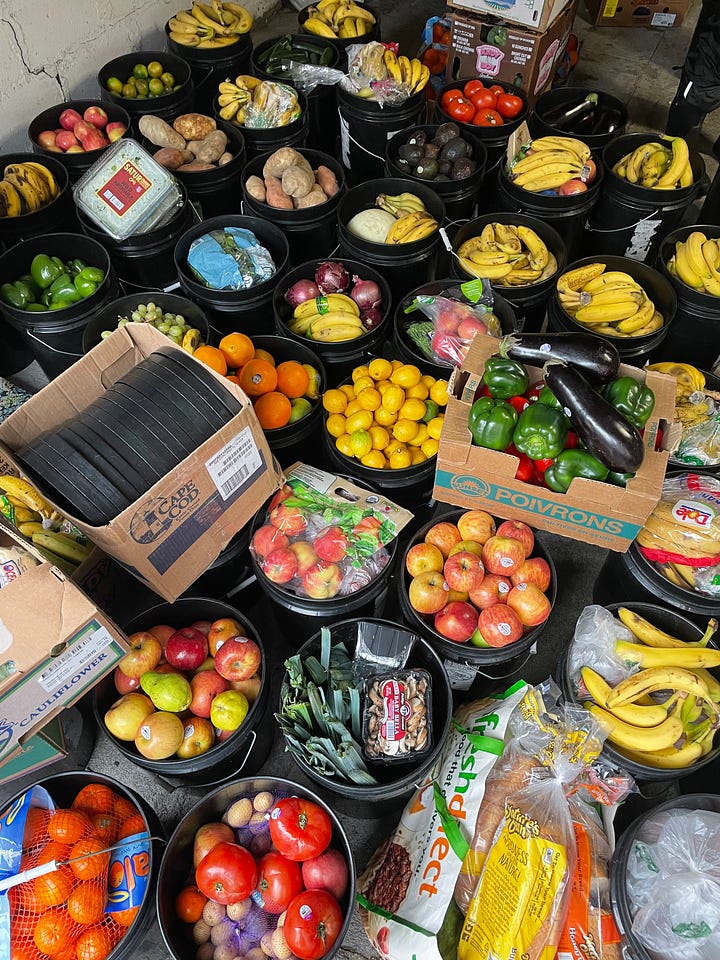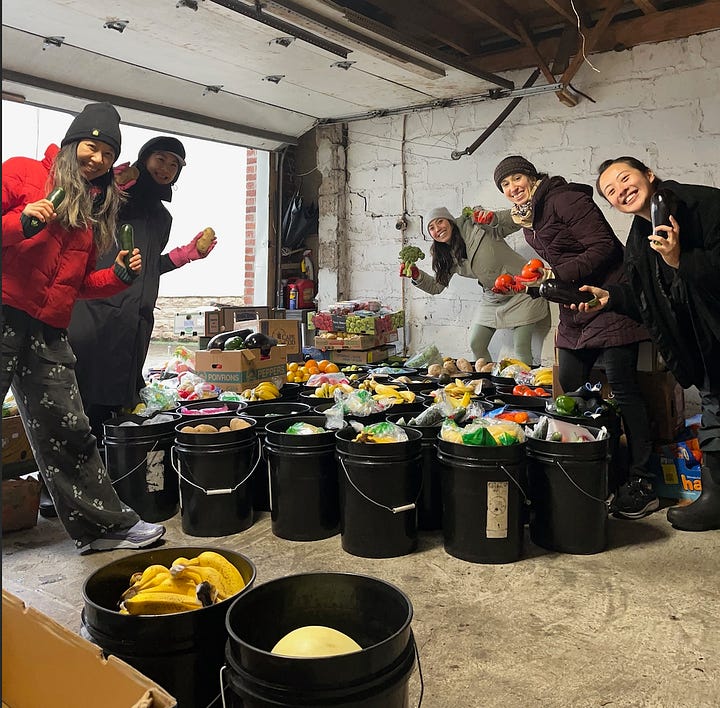The community fridges that feed, green, and unify NYC
New York has a reputation for being a dog eat dog, make it or break it, “I’m walkin’ here!” sort of city.
But it’s also a city where community members stock and maintain neighborhood fridges that keep each other fed for free. In fact, according to this map of community fridges, there are currently 171 dotted around the city (although on a double click you will find that many of these are broken or no longer running). They can range from mini fridges to full-sized fridges with an adjacent pantry. They’ve got names like Flatbush Friendly Fridge and Forest Avenue COMEunity Fridge. They’re often brightly decorated, bearing symbols of activism and paintings of produce.
Community fridges around the US popped up during Covid-19 to address climbing rates of food insecurity. When local residents couldn’t afford or access food during the pandemic, free take-what-you-need fridges offered safe and dignified ways to collect food at a distance from others.
At the same time, these fridges provide a crucial collection site for perfectly good, quality food that might otherwise go to waste. Fridges around the city are often stocked with fresh produce, pantry staples, and even sushi from Whole Foods. (The food in fridges does not always have to be recovered - organizations like One Love Community Fridge have Farm-to-Fridge and Chef-to-Fridge programs that stock community fridges with produce and meal donations from local farms and talented chefs.)
While heartwarming and inspiring, these fridges are also symptoms of a fundamental breakdown in our food system. They beg the question: why is fresh and healthy food unaffordable and inaccessible to a large portion of the population (almost 15% of New York City residents are food insecure), and why is perfectly good food consistently being sent to a rotting, methane-emitting fate in a landfill?
I met my first community fridge in the wild when volunteering one weekend with Groundcycle. Vivian, Groundcycle’s founder, was kind enough to donate leftover flowers from an event for my last Fancy Scraps popup dinner in December. After years of collecting and sorting through rescued produce with her father, she recently opened up produce sorting parties for volunteers.
Groundcycle is a compost, food recovery, and produce delivery company that keeps fridges around Brooklyn stuffed with impeccable groceries diverted from the landfill. Every Sunday, Vivian’s garage fills with potatoes, eggplants, mushrooms, arugula, apples, tomatoes, melons, oranges, lemons, limes, avocados, bananas - so. many. bananas. - and more from a local grocery delivery service with a nearby warehouse. If the company doesn’t sell an item, if a perfectly good container of arugula sits 1 day past the expiration date, if they get a new shipment of goods and their warehouse is too full, grocery store quality food becomes trash.
So… if I’m not wrong… it sounds like the company just needs to take the good produce from the warehouse and bring it to a location for people to access it right?
Yeah, basically! But who is to do that?
For a business, the priority of waste management is to get it out of their sight, not a concern of what happens to the goods when they’re taken away. It is often not worth the labor, time, and attention to sort the slightly browning bananas from the full mush ones. If it’s low cost to truck it all away to an unknown location, the business is likely to choose that option.
The simple operational link between supply and demand is missing, until someone like Vivian puts in the effort to fill it. Groundcycle is not only providing a service to businesses by whisking away the inconvenience of unwanted goods, but also offering an invaluable resource for the community and the environment. It is so inspiring to hear how Vivian has spent the past three years building this business, spending her weekends sorting through buckets on buckets of produce to feed the community.
(Beyond the food recovery and community fridge stocking, which happens multiple times a week, Groundcycle also picks up home and business food scraps to compost at McEnroe Organic Farm in Millerton, NY, and brings subscription members produce from local farms grown using that very compost - now that’s full cycle.)
With people like Vivian in New York City, I can stomach a few taxi drivers laying on the horn in traffic or the occasional rude subway rider. Because at the heart of this city is people who see something broken, and take the initiative to make a change.







